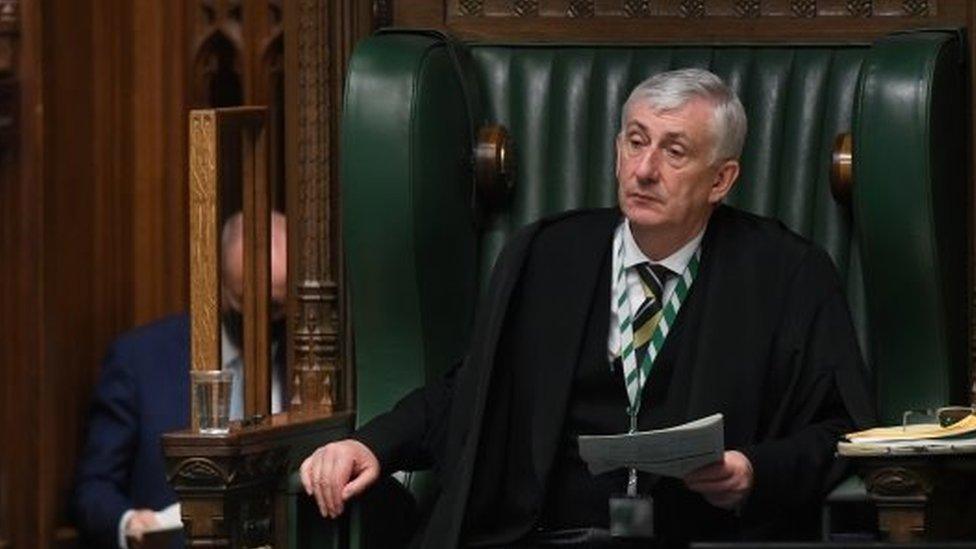Fake emails sent to MPs totally unacceptable - Lindsay Hoyle
- Published

Fake emails sent to MPs by university researchers were "totally unacceptable", Commons Speaker Sir Lindsay Hoyle has said.
Professor Rosie Campbell of King's College London said the study aimed to find out how MPs treat constituents.
She apologised "if we misjudged the imposition this would place" on staff.
One MP said the project showed a "lack of understanding of the pressures facing our office's resources a year into a global pandemic".
Labour's Sarah Owen said: "As our constituents' lives have been thrown into uncertainty by Covid, our staff teams have been dealing with more cases than ever.
"In my own office, our workload has increased by over 300% compared to normal times - that's why I was so frustrated, to put it mildly, to read about a study by King's College London where they sent fake casework to MPs including myself to test how efficiently our staff responded."
Sir Lindsay confirmed he had written to King's College's bosses and its ethics committee to complain about what he called the university's "appalling" actions.
In his letter, seen by the 91Čȱ¬, Sir Lindsay said academic research should "not be conducted in a way which impedes MPs in performing their functions".
"It is hard to see how any responsible researcher could have thought sending over 1,000 spoof emails [to MPs]... was a good idea, how any responsible ethics committee could have approved it or how any responsible body could have funded it," he said.
'It's cheating'
His comments were echoed by Labour's shadow Commons leader Valerie Vaz and her ministerial counterpart Jacob Rees-Mogg, who accused the academics of "deeply foolish behaviour".
"Writing to people with a false name is dishonest, it's cheating and it's the sort of behaviour that no respectable ethics committee would approve," said Mr Rees-Mogg.
And the GMB union, which represent MPs' staff, said: "This is an appalling misuse of MP office time when we're already over-stretched with (genuine!) urgent casework issues."
Conservative MP Tim Loughton says he was sent an email from the study in which a man claiming to be cleaner says he is worried about people losing their jobs due to Covid.
The email concludes: "As a Conservative supporter, I'd like to know what you and the Conservative party are going to do to get us through this crisis in the best possible way."
, Prof Campbell said: "We sincerely apologise if we misjudged the imposition this would place on MPs and their staff," adding that it had not been the researchers' intention to waste people's time.
She argued that such studies were "the only really robust means of gaining a reliable measure of MPs' responsiveness".
To limit the burden on MPs' offices she explained the study had opted to send only two short emails to MPs and had not sent further responses.
The study have been cleared by the university's ethics committee, she added, and had received funding before the coronavirus pandemic.
It was put on hold, but researchers decided to go ahead with it in November 2020, as it was of "public importance" and two emails would not be "too burdensome".